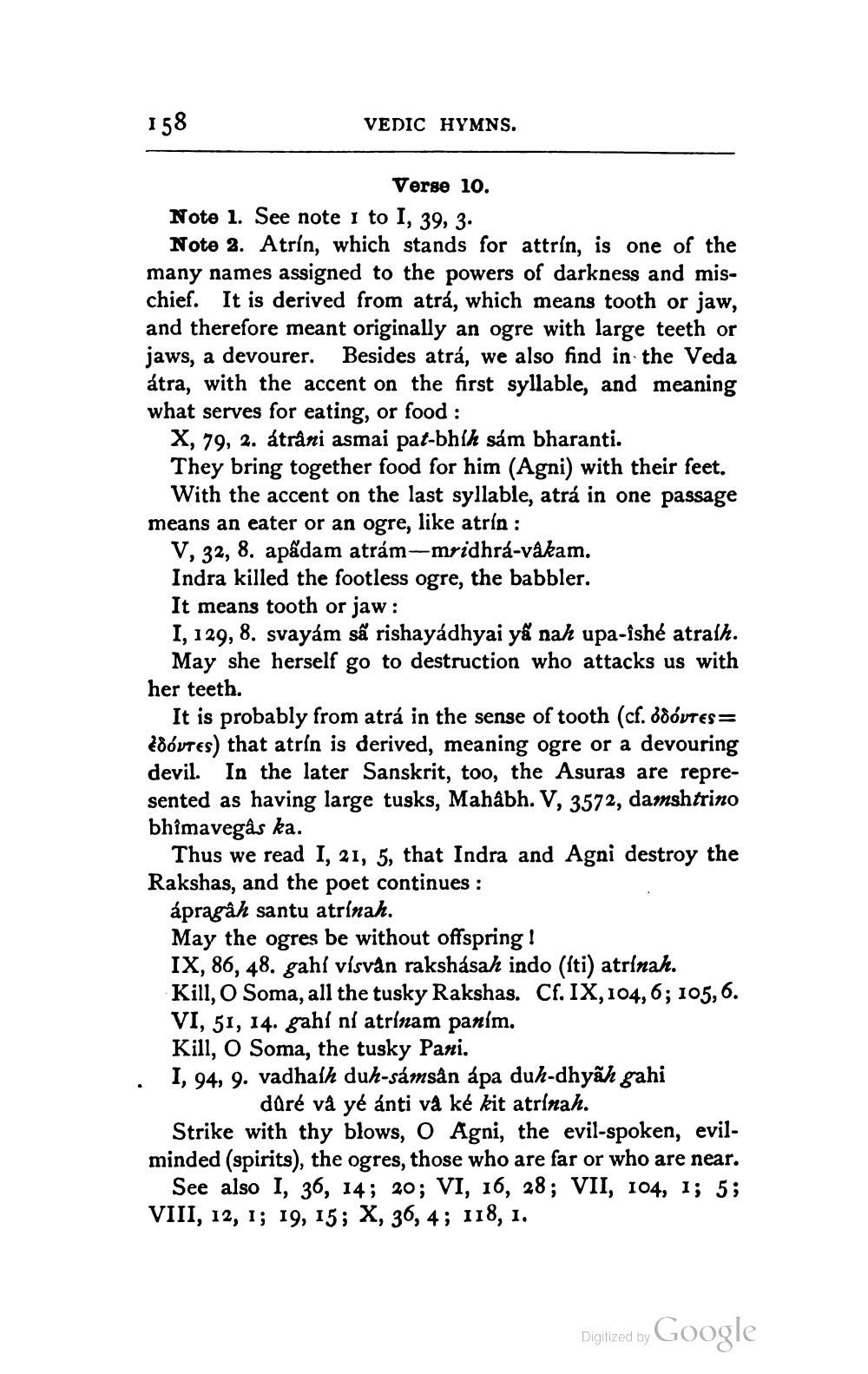________________
158
VEDIC HYMNS.
Verse 10. Note 1. See note i to I, 39, 3.
Note 2. Atrin, which stands for attrin, is one of the many names assigned to the powers of darkness and mischief. It is derived from atrá, which means tooth or jaw, and therefore meant originally an ogre with large teeth or jaws, a devourer. Besides atrá, we also find in the Veda átra, with the accent on the first syllable, and meaning what serves for eating, or food :
X, 79, 2. átrâni asmai pat-bhíh sám bharanti. They bring together food for him (Agni) with their feet.
With the accent on the last syllable, atrá in one passage means an eater or an ogre, like atrla :
V, 32, 8. apádam atrám-mridhra-vâkam. Indra killed the footless ogre, the babbler. It means tooth or jaw: I, 129, 8. svayám să rishayádhyai yã nah upa-ishé atralh.
May she herself go to destruction who attacks us with her teeth.
It is probably from atrá in the sense of tooth (cf. Odóvres= dóvres) that atrin is derived, meaning ogre or a devouring devil. In the later Sanskrit, too, the Asuras are represented as having large tusks, Mahâbh. V, 3572, damshtrino bhimavegås ka.
Thus we read I, 21, 5, that Indra and Agni destroy the Rakshas, and the poet continues :
ápragâh santu atrinah. May the ogres be without offspring! IX, 86, 48. gahí vísvân rakshásah indo (Iti) atrinah. Kill, O Soma, all the tusky Rakshas. Cf. IX, 104,6; 105, 6. VI, 51, 14. gahi ni atrinam paním. Kill, O Soma, the tusky Pani. I, 94, 9. vadhalh duh-sámsån ápa duh-dhyâh gahi
darẻ và y ảnti và kẻ kit atriaah. Strike with thy blows, O Agni, the evil-spoken, evilminded (spirits), the ogres, those who are far or who are near.
See also I, 36, 14; 20; VI, 16, 28; VII, 104, 1; 5; VIII, 12, 1; 19, 15; X, 36, 4; 118, 1.
Digitized by
Digitized by Google




